Whether you’re a seasoned driver with years under your (seat)belt or have just got behind the wheel you should be aware of the activities and habits that are classed as driving offences in the UK as well as the punishments you will face if you are caught doing one.
We hope to help explain what a driving offence is, as well as some of the most common ones that UK drivers are charged with, and the punishments you can face for this in particular as well as wider driving offence penalties.
What is a Driving Offence?
A driving offence is a crime committed whilst behind the wheel of or responsible for a vehicle.
There are a wide number of offences that fall under this category and they range from failing to provide your details at the scene of an accident to causing death by dangerous driving.
Driving Offence Penalties
Before we look at the types of offences that you can commit while in a vehicle we first wanted to look at the types of penalties you might receive.
A driving offence is classed as a criminal offence which means that just like with any other criminal offence you can
Fixed Penalty Notices
A fixed penalty notice (FPN) is a fine that will be issued to you by the police, usually alongside driving licence points. If it is just a fine then it will be a non-endorsable ticket but if it is accompanied by points then it will be an endorsable FPN.
You can choose to pay an FPN rather than going through court proceedings for the offence. If you decide to challenge the offence though then this will mean that you will need to appear in court.
A FPN can be issued on the spot by police or you might receive a notice in the post depending on the office and how it was caught. For example, if you are caught speeding by a stationary camera the notice will be posted to you.
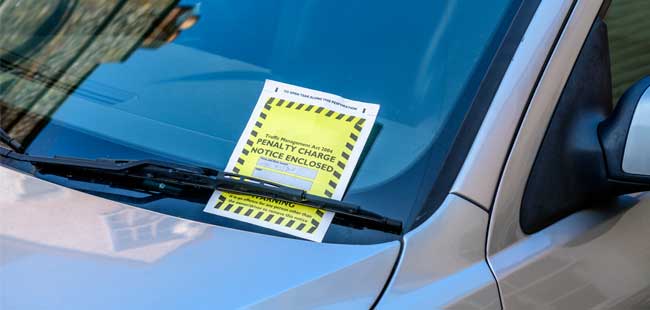
Depending on the seriousness of the offence then a FPN can be for £50, £100, £200 or £300 and you will have 28 days to make a payment for this.
Some offences that are punishable by an FNP include:
- Neglecting traffic regulations (eg not obeying traffic signs or traffic lights)
- Negligent use of vehicle
- Vehicle registration and excise licence offences (eg registration not readable)
- Motorway offences (eg stopping on a hard shoulder without valid reason)
- Vehicle or part of it in dangerous or defective condition (eg window obstructed)
- Neglecting pedestrian’s rights
- Lighting offences (eg misuse of headlights)
- Noise offences (eg sounding horn at night)
- Load offences (eg exceeding weight restrictions)
- Unrestrained animals
- Speeding
- Careless driving (eg middle lane hogging and reckless overtaking )
- Failure to wear a seat belt when driving
- Driving without a valid MOT
- Driving without third party insurance
- Using a mobile phone whilst driving
Points on Your Licence
One of the most common penalties that can be given and is a possibility for the majority of road traffic offences is driving licence points.
The number of points you receive varies between offences, and there is usually a guideline range for each offence.
You can receive a ban from driving if you accrue twelve or more points on your licence within three years. The length of the ban can vary and when given by the court mitigating factors may be taken into account as well as the type of offences that you have committed.
Depending on the offence then points will stay on your licence for either four or 11 years. When you receive the penalty points you will also be notified of how long they will remain on your licence.
Driving Disqualification
It is not only for accruing points on your driving licence that you can be disqualified from driving for.
There are a number of offences that you can commit which might lead to instant disqualification. Again, the length of this will depend on the sentence the court issues, though some offences come with a minimum length of time.
You might hear the terms obligatory driving disqualification or a discretionary driving ban. An obligatory one is where a driving ban must be imposed as part of the sentence whereas a discretionary ban does not have to be applied, and the court may choose an alternative punishment.
For example, the penalty for dangerous driving comes with a minimum of two years disqualification alongside potential points or prison time, but the careless driving penalty has a discretionary ban or three to nine points.
Following a disqualification from driving, you might also be required to take an extended test in order to be able to legally drive again.
If you are disqualified from driving you must not get behind the wheel of any vehicle at all for the duration of the ban.
Prison Time
The most severe of punishments that can be imposed for a driving offence is a prison sentence. As road traffic cases are classed as criminal offences by the courts then for some of the more serious offences you could face a custodial sentence.
The sentence you receive will depend not only on the type of crime but also the severity of it.
Offences that you can receive prison time for include:
Before imposing a prison term, the court will usually require probationary services to assist with pre-sentence reports that provide background on an individual and their circumstances and assist with recommendations for sentencing.
Driving Offences
Driving offences are usually classed as either a minor or major offence, which is based on the serious nature of the offence and helps determine the penalty that you receive for it.
In this blog we will look at ten of the most common offences that drivers commit on UK roads, which are:
- Speeding
- Mobile phone use
- Careless driving
- Dangerous driving
- Driving under the influence
- Driving without insurance
- Driving otherwise than in accordance with a licence
- Driving when disqualified
- Driving without an MOT
- Driving without a seatbelt or the incorrect car seat
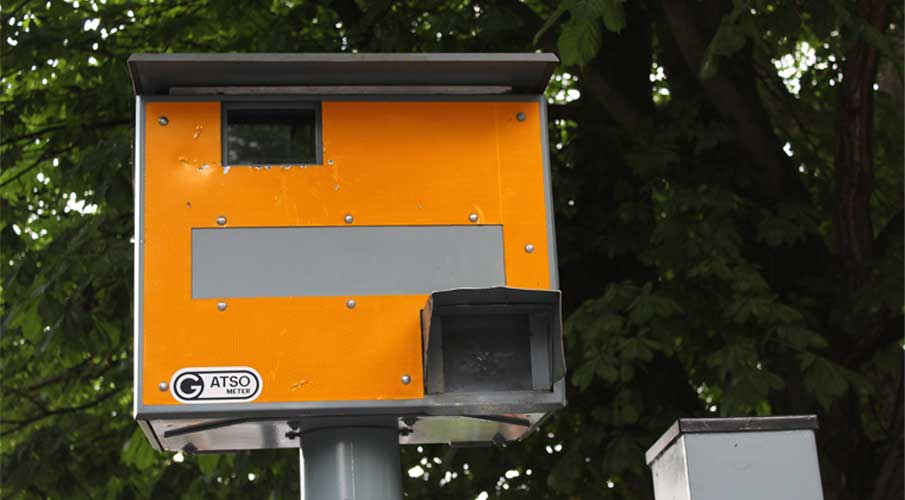
Speeding
Speeding is the most common offence that drivers on UK roads are charged with.
If you are caught speeding then you will usually receive a £100 fine and three penalty points on your licence. However, if you have no previous speeding offences and depending on the speed you are travelling you might be offered to take a speed awareness course rather than points on your licence.
It will be your responsibility to pay for the course and to arrange to complete this in a timely manner.
Alternatively, if you are caught travelling at over 45% more than the speed limit then your case will most likely have to go to court and you can face a larger fine of up to £2,500 or a driving ban.
General guidelines recommend that drivers are only prosecuted when exceeding the speed limit by 10% plus 2 mph however this is just guidance and police aren’t required to stick to it so you should not assume there is this leeway.
For your own and others’ safety we advise you to never exceed the speed limit, and if driving, road or weather conditions make it unsafe to do so then you do not need to drive the limit but at a suitable safe speed. Don’t let other road users pressure you to drive faster or to speed.
For more information on speeding and how you can stop yourself from speed check out this piece we wrote as part of 2020’s Road Safety Week.
Mobile Phone Use
You can get an on the spot FPN which includes a £200 fine and 6 penalty points for your licence if you are caught using a handheld phone while behind the wheel of a vehicle. This includes if you are in stationary traffic.
Depending on the risk to yourself and others you can also be taken to court where you can receive a driving ban and a fine of up to £1,000 unless you are driving a lorry or bus which carries a heavier fine.
It is still legal to use a mobile phone connected to approved hands-free technology, whether this is a Bluetooth device or in-car technology. However, where possible we recommend avoiding using your phone at all when driving as it distracts you from the road.
Drivers who have passed their test within two years of being caught using their mobile phone could also lose their driving licence.
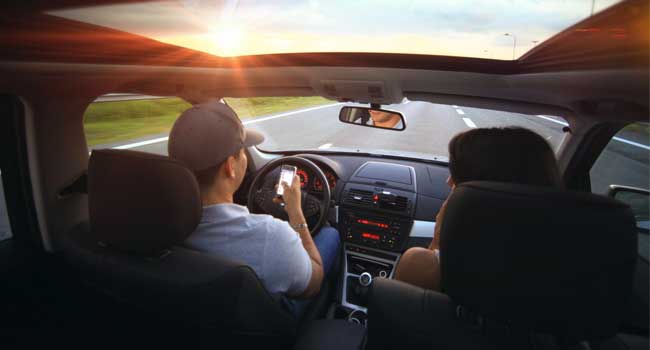
Careless Driving
Careless driving, which is also known as driving without due care and attention, is a term used to encompass a range of offences including poor lane discipline, tailgating, not giving way at a junction, hogging the middle lane, handbrake turns, operating a satnav or reading a map while driving, eating or drinking while driving, smoking and driving, reckless overtaking and many more.
Police can issue an on the spot £100 fine for careless driving as well as three penalty points for your driving licence. For more serious cases of careless driving they can go to court and have a fine of up to £2,500 and a driving disqualification.
There is an additional charge of causing death by careless driving, and if you are found to be responsible for a lack of concentration that caused a fatal crash then you will be charged with this. Punishment can be a driving ban, unlimited fine or up to five years prison sentence.
Dangerous Driving
Dangerous driving is a more serious charge than careless driving and is classed as driving which falls far below what would be expected from a competent and careful driver.
Driving that would be classed as dangerous includes aggressive driving, overtaking in dangerous and unsafe locations as well as racing other vehicles.
As the charge is more serious than careless driving the punishment is more severe and can be an unlimited fine, up to two years prison sentence and a driving disqualification.
There is also an additional charge under dangerous driving which is causing death by dangerous driving and punishment for this is a driving ban, an unlimited fine and up to 14 years imprisonment.
Driving Under the Influence
There are two main charges that come under the bracket of driving under the influence, drink driving and drug driving.
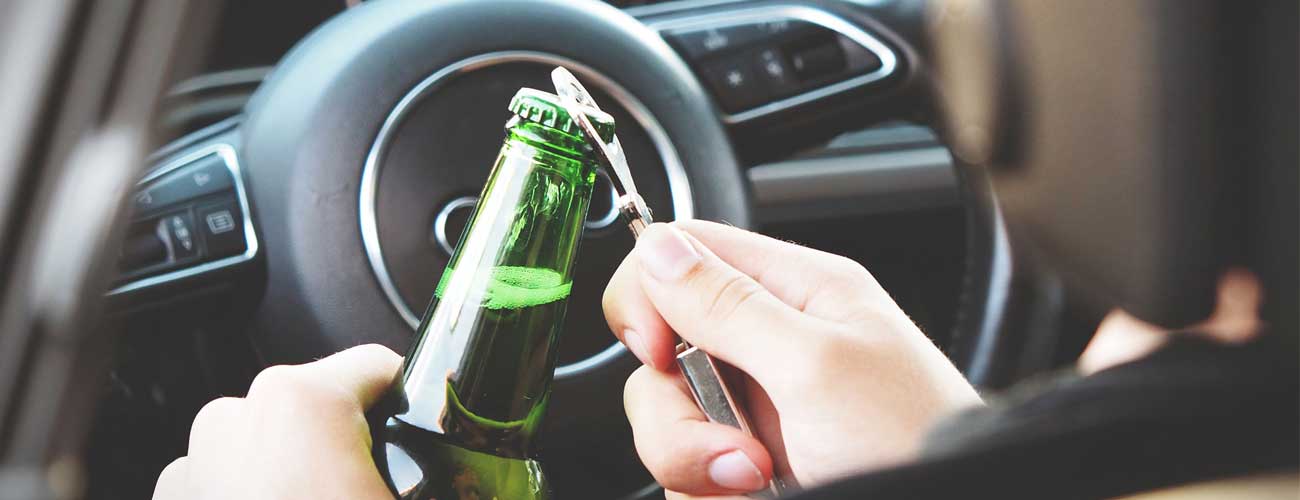
Drink Driving
The legal alcohol limit for driving in England, Wales and Northern Ireland is 80 milligrams (mg) per 100 millilitres (ml) of blood and in Scotland it’s slightly lower at 50 mg per 100 ml of blood.
The amount of alcohol you can drink and remain under the legal limit varies depending on the drink you are consuming, your body size, and how much you’ve had to eat. We recommend not drinking at all if you plan on driving and to be cautious driving the day after a big night out.
Police can stop you at any time when you are driving and if they suspect you are over the limit they can use a breathalyser to test the amount of alcohol in your breath.
The limit for which is 35 mg per 100 ml of breath in England, Wales and Northern Ireland and 22 mg in Scotland.
If you fail this initial test then you will be placed under arrest on suspicion of drink driving and taken to a police station for more accurate testing.
If you refuse to provide a sample then you can also be placed under arrest for suspicion of drink driving, but you can also face another charge of failure to provide a specimen.
When tested at the station if you are shown to be over the limit then you can face a possible driving ban, unlimited fine and six months in prison.
If you are involved in a car crash while over the legal alcohol limit and you are found to be responsible for another person’s death then you can face a 14 year prison sentence, unlimited fine and a two year driving ban.
Drug Driving
Drug driving is not just a charge that is applied to driving while under the influence of illegal drugs but also includes prescription medication that affects your driving like morphine.
If you are suspected of driving while under the influence of drugs then the police may ask you to carry out a roadside drug test.
The penalties if you are found to be under the influence of drugs include a one year driving ban, unlimited fine and six months in prison.
Driving Without Insurance
It is a legal requirement to have insurance on your vehicle and it is an offence to drive a car without valid insurance, whether you are the legal owner or not.
The penalty for driving without insurance is a fine of £300 and six points to your licence and police also have the ability to seize any uninsured vehicle. If the case is taken to court this can increase to an unlimited fine and a driving ban for you.
Please note even if the vehicle is insured in someone else’s name then the same punishments can apply if you do not also have valid cover to drive it.
In the event that you are driving an uninsured vehicle and are involved in an accident you will also be liable.
If you are considering a lease vehicle for your next car then take a look at this guide to insuring a lease car.
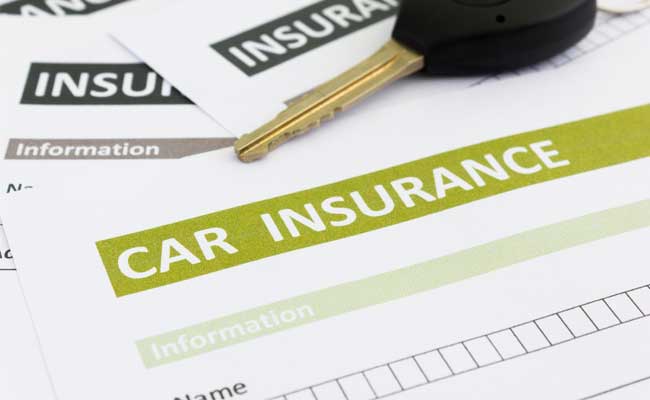
Driving Otherwise than in Accordance with a Licence
Driving otherwise than in accordance with a licence is another of those terms that covers several offences including driving while underage, driving on a provisional licence without a supervisor or L-plates and driving without a licence.
Punishments vary depending on the offence but can be a fine of up to £1,000, up to six points on your driving licence and a driving disqualification.
Driving When Disqualified
If you are banned from driving and then found to be behind the wheel during your banned period then the police will arrest you on the spot.
The minimum you will receive for driving while disqualified will be an extended ban and a fine, however you can also receive a prison sentence for the offence.
Driving Without an MOT
Once a car is three years old it will need to have an MOT completed annually.
Without a valid MOT certificate it is illegal to drive the vehicle, and the car will flag up on police cars’ ANPR system so you will be caught fairly quickly.
The penalty for this is a £100 on the spot fine, which can go up to £1,000 if the case is taken to court.
The punishment can also be more severe if the vehicle is found to be unroadworthy by the police, and you can receive a fine and points on your licence for each fault that is discovered. Depending on the number of faults the vehicle has this can also result in a driving ban.
Driving Without a Seatbelt or Correct Car Seat
If you are found to be driving without a seatbelt then you can be fined up to £500, as can any of your passengers who are not wearing a seatbelt.
As the driver, you are only allowed one person in each seat that is fitted with a seatbelt and must ensure that any children travelling in the vehicle are in the correct car seat or wearing a belt depending on their height and age. You can be fined £500 for a child in your vehicle under 14 not wearing the correct seatbelt or in the right car seat.
We’ve got a range of guides for family safety including a guide on car seats if you would like more information on these.
For more information on staying safe while on the road check out our safety guides or bookmark our blog homepage so you can always find our latest helpful articles.









Leave a Comment